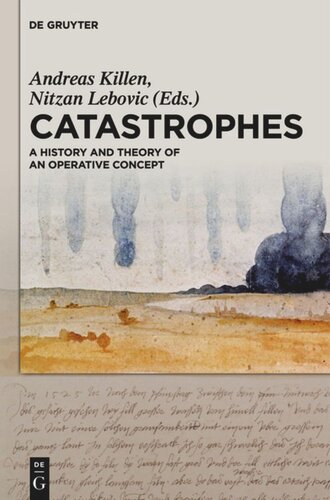

Most ebook files are in PDF format, so you can easily read them using various software such as Foxit Reader or directly on the Google Chrome browser.
Some ebook files are released by publishers in other formats such as .awz, .mobi, .epub, .fb2, etc. You may need to install specific software to read these formats on mobile/PC, such as Calibre.
Please read the tutorial at this link: https://ebookbell.com/faq
We offer FREE conversion to the popular formats you request; however, this may take some time. Therefore, right after payment, please email us, and we will try to provide the service as quickly as possible.
For some exceptional file formats or broken links (if any), please refrain from opening any disputes. Instead, email us first, and we will try to assist within a maximum of 6 hours.
EbookBell Team

4.4
62 reviewsCatastrophic scenarios dominate our contemporary mindset. Catastrophic events and predictions have spurred new interest in re-examining the history of earlier disasters and the social and conceptual resources they have mobilized. The essays gathered in this volume reconsider the history and theory of different catastrophes and their aftermath. The emphasis is on the need to distance this process of reconsideration from previous teleological representations of catastrophes as an endpoint, and to begin considering their "operative" aspects, which unmask the nature of social and political structures. Among the essays in this volume are analyses, by leading scholars in their respective fields, concerning the role of catastrophes in theology, in the history of industrial accidents, in theory of history, in the history of law, in "catastrophe films", in the history of cybernetics, in post-Holocaust discussions of reparations, and in climate change.